 W
WKeiko Abe is a Japanese composer and marimba player. She has been a primary figure in the development of the marimba, in terms of expanding both technique and repertoire, and through her collaboration with the Yamaha Corporation, developed the modern five-octave concert marimba.
 W
WYasushi Akutagawa was a Japanese composer and conductor. He was born and raised in Tabata, Tokyo. His father was Ryūnosuke Akutagawa.
 W
WIkuma Dan was a Japanese composer.
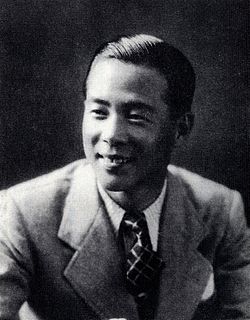 W
WIchirō Fujiyama , born Takeo Masunaga , was a popular Japanese singer and composer, known for his contribution to Japanese popular music called ryūkōka by his Western classical music skills. He was born in Chūō, Tokyo, and graduated from the Tokyo Music School. Although he was regarded as a tenor singer in Japanese popular music, he was originally a classical baritone singer. He also acted in various films, and was a close friend of Minoru Matsuya (1910–1995). His workroom has been reproduced inside the "NHK museum of broadcasting" as an exhibit.
 W
WShirō Fukai was a Japanese composer.
 W
WKunihiko or Qunihico Hashimoto was a Japanese composer, violinist, conductor, and musical educator. He was born in the Hongo district of Tokyo. In 1923, he entered the Tokyo Music School where he studied violin and conducting. In composition, he was largely self-taught, but later he would study that subject as a graduate student at the same school. Initially, he was active as a composer and arranger, but he soon made himself a name as an accomplished teacher, and in 1933 was appointed as professor at his alma mater. Some of his students who would go on to become distinguished composers in their own right were Akio Yashiro, Yasushi Akutagawa, Ikuma Dan, and Toshiro Mayuzumi. See: List of music students by teacher: G to J#Kunihiko Hashimoto. Between 1934 and 1937, he visited Wien as a Japanese government scholar to study with Egon Wellesz. During this period, he was introduced to the likes of Alban Berg, Wilhelm Furtwängler, and Bruno Walter. Before returning, he also made a sojourn to Los Angeles, where he studied with Arnold Schoenberg. He died in Kamakura in 1949, 44 years of age, from gastric cancer.
 W
WFumio Hayasaka was a Japanese composer of classical music and film scores.
 W
WMamoru Fujisawa , known professionally as Joe Hisaishi , is a Japanese composer and musical director known for over 100 film scores and solo albums dating back to 1981. Hisaishi is also known for his piano scores.
 W
WToshio Hosokawa is a Japanese composer of contemporary classical music. He studied in Germany but returned to Japan, finding a personal style inspired by classical Japanese music and culture. He has composed operas, the oratorio Voiceless Voice in Hiroshima, and instrumental music.
 W
WToshi Ichiyanagi is a Japanese composer and pianist.
 W
WAkira Ifukube was a Japanese classical and film music composer, best known for his works on the Godzilla franchise.
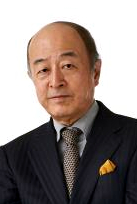 W
WShin'ichirō Ikebe is a Japanese composer of contemporary classical music.
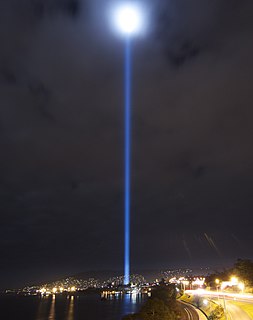 W
WRyoji Ikeda is a Japanese visual and sound artist who currently lives and works in Paris, France. Ikeda's music is concerned primarily with sound in a variety of "raw" states, such as sine tones and noise, often using frequencies at the edges of the range of human hearing. The conclusion of his album +/- features just such a tone; of it, Ikeda says "a high frequency sound is used that the listener becomes aware of only upon its disappearance". Rhythmically, Ikeda's music is highly imaginative, exploiting beat patterns and, at times, using a variety of discrete tones and noise to create the semblance of a drum machine. His work also encroaches on the world of ambient music; many tracks on his albums are concerned with slowly evolving soundscapes, with little or no sense of pulse.
 W
WYoshirō Vladimir Irino was a Japanese composer.
 W
WTeiji Ito was a Japanese composer and performer. He is best known for his scores for the avant-garde films by Maya Deren.
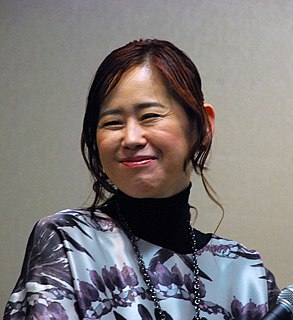 W
WYuki Kajiura is a Japanese musician, composer and record producer. She has provided the music for several popular anime series, such as the final Kimagure Orange Road movie, Noir, .hack//Sign, Aquarian Age, Madlax, My-HiME, My-Otome, Pandora Hearts, Puella Magi Madoka Magica, Fate/Zero, Sword Art Online, Tsubasa: Reservoir Chronicle, Demon Slayer: Kimetsu no Yaiba and the Kara no Kyoukai movies. She also assisted Toshihiko Sahashi with Mobile Suit Gundam SEED and Mobile Suit Gundam SEED Destiny. Kajiura has also composed for video games, including the cutscene music for Xenosaga II and the entire Xenosaga III game soundtrack. She composed the music for NHK's April 2014 morning drama (asadora) Hanako to Anne.
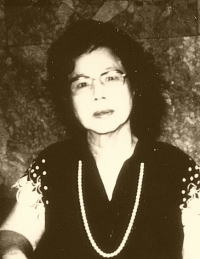 W
WKikuko Kanai was a Japanese composer.
 W
WYoko Kanno is a Japanese composer, arranger and musician best known for her work on the soundtracks of anime films, television series, live-action films, video games, and advertisements. She was born in Sendai, Miyagi Prefecture, Japan. She has written scores for Cowboy Bebop, Darker than Black, Macross Plus, Turn A Gundam, The Vision of Escaflowne, Ghost in the Shell: Stand Alone Complex, Wolf's Rain, Kids on the Slope, Genesis of Aquarion and Terror in Resonance, and has worked with the directors Hirokazu Kore-eda, Yoshiyuki Tomino, Shinichirō Watanabe and Shōji Kawamori. Kanno has also composed music for pop artists Maaya Sakamoto and Kyōko Koizumi. She is also a keyboardist, and is the frontwoman for the Seatbelts, who perform many of Kanno's compositions and soundtracks.
 W
WMine Kawakami is a Japanese pianist and composer.
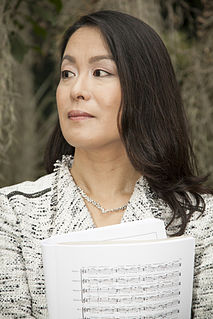 W
WMalika Kishino is a Japanese composer based in Cologne / Germany.
 W
WYasuji Kiyose was a Japanese composer. He studied composition privately with Kōsaku Yamada and Kōsuke Komatsu and in 1930, took an active part in organizing the Shinkō Sakkyokuka Renmei,.
 W
WKen'ichiro Kobayashi is a Japanese conductor and composer. In Japan he is known among his fans as “Kobaken.”
 W
WNobu Kōda 幸田延 (1870–1946) was a Japanese composer, violinist, and music teacher. She was one of the first Japanese women to study music overseas. She studied at the New England Conservatory. She later studied in Europe. She was the sister of Kōda Rohan.
 W
WViscount Hidemaro Konoye was a conductor and composer of classical music in Shōwa period Japan. He was the younger brother of pre-war Japanese Prime Minister Fumimaro Konoe.
 W
WYasuo Kuwahara was a Japanese mandolin player and composer for mandolin orchestra. He was chairman of various musical institutions and organizations, including the Nara National Women's College, the Kuwahara Mandolin Institute and the Japan Association of Music Exchange. In addition, he taught composition and artistic mandolin.
 W
WKento Masuda is an award-winning Japanese composer and recording artist. He is a member of The Recording Academy, and his work has been described as "one of this world's artistic treasures." As an exclusive player for KAWAI pianos, Masuda is the sole player of the one million dollar Crystal Grand Piano.
 W
WYoritsune Matsudaira was a Japanese composer of contemporary classical music.
 W
WToshiro Mayuzumi was a Japanese composer known for his implementation of avant-garde instrumentation alongside traditional Japanese musical techniques. His works drew inspiration from a variety of sources ranging from jazz to Balinese music, and he was considered a pioneer in the realm of musique concrète and electronic music, being the first artist in his country to explore these techniques. In the span of his career, his works included symphonies, ballets, operas, and film scores, and was the recipient of an Otaka prize by the NHK Symphony Orchestra and the Purple Medal of Merit.
 W
WTadatoshi Miyagawa is a Japanese composer, a Gagaku performer and researcher, as well as a music arranger. His former last and first name was Konoe Toshitake (近衛俊健).
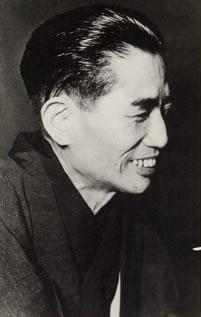 W
WMichio Miyagi was a Japanese musician, famous for his Koto (instrument) playing.
 W
WNobuyuki Nakajima – is Japanese musician, composer, arranger, pianist, who studied composition in Tokyo and Paris. Noted not only for his masterful piano, but also for his talent of composing and arranger of elegant and thrilling ensembles, based on the impressive depth and variety of his musical literacy. He has composed original soundtracks for Japanese TV series such as the NHK Taiga drama Yae no Sakura.
 W
WKiyoshi Nobutoki was a Japanese composer, teacher and cellist.
 W
WHikari Ōe is a Japanese composer. He is the son of Japanese author Kenzaburō Ōe and Yukari Ikeuchi, and the nephew of director Juzo Itami.
 W
WHisato Ohzawa was a Japanese composer. His relative neglect today contrasts with the view that he was one of the preeminent Japanese composers of his day.
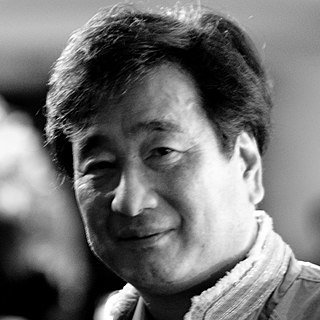 W
WShigeaki Saegusa is a Japanese composer.
 W
WRyuichi Sakamoto is a Japanese composer, singer, songwriter, record producer, activist, and actor who has pursued a diverse range of styles as a solo artist and as a member of Yellow Magic Orchestra (YMO). With his bandmates Haruomi Hosono and Yukihiro Takahashi, Sakamoto influenced and pioneered a number of electronic music genres.
 W
WTokichi Setoguchi was a Japanese composer, music educator, conductor and clarinetist.
 W
WIsotaro Sugata was a Japanese composer.
 W
WKoichi Sugiyama is a Japanese composer, conductor, and orchestrator. Sugiyama is known for composing the music for the Dragon Quest video game series, along with several other games, anime, film, and television shows. Classically trained, Sugiyama is considered a major inspiration for other Japanese game music composers.
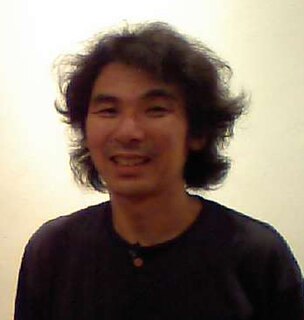 W
WAyuo Takahashi is a Japanese-American composer, poet, lyricist, singer and performer of plucked string instruments including guitar, bouzouki, Irish harp, Chinese zheng, Japanese koto, and medieval European psaltery. He is adept at adapting the ancient music of Japan, China, Persia, Greece and medieval Europe to create a new and original music without abandoning their strict forms, while simultaneously making them relevant to contemporary music styles. He has composed for classical ensembles including string quartets, piano, various chamber ensembles and orchestra, as well as composed, produced and performed with rock, jazz and musicians of various traditional music from around the world. He has also composed many music theater pieces, some of which has been released on CD in the United States and Japan.
 W
WMari Takano is a Japanese composer, pianist, essayist, and teacher. Takano's work, and musical voice, has been recognized as among the most distinctive to be found amid Japanese composers of the "post-Takemitsu generation".
 W
WMorishige Takei , who studied Italian at Tokyo College of Language, was a member of the court of Emperor Hirohito. After studying in Italy and discovering the mandolin and guitar, he returned to Japan and in 1915 established what would become the Sinfonia Mandolini Orchestra, a mandolin orchestra. The orchestra would continue through 1949, when he died. He became a composer, with 114 compositions for mandolin and guitar.
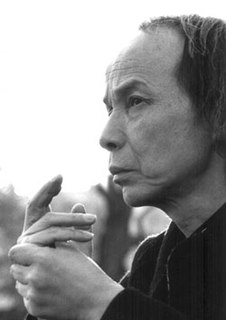 W
WTōru Takemitsu was a Japanese composer and writer on aesthetics and music theory. Largely self-taught, Takemitsu was admired for the subtle manipulation of instrumental and orchestral timbre. He is known for combining elements of oriental and occidental philosophy and for fusing sound with silence and tradition with innovation.
 W
WMarika Takeuchi is a Japanese contemporary composer, film composer, music producer and pianist.
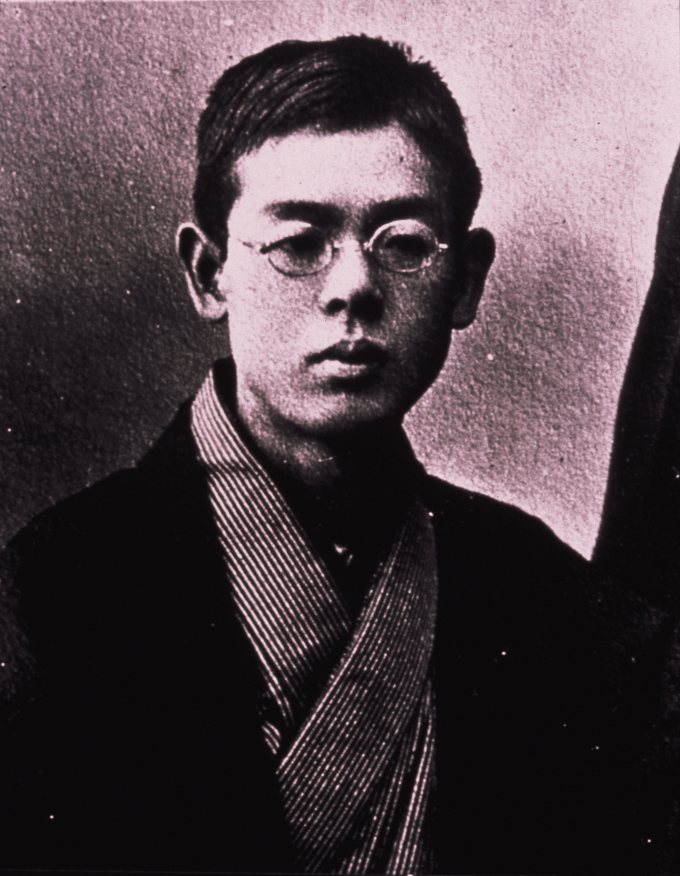 W
WRentarō Taki was a Japanese pianist and composer of the Meiji era.
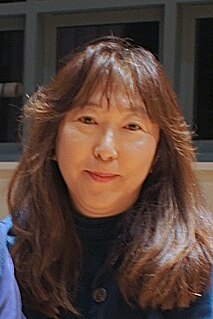 W
WKaren Tanaka is a Japanese composer.
 W
WNobuyuki Tsujii is a Japanese pianist and composer. He was born blind due to microphthalmia, and his exceptional musical talent has propelled him to become a world renowned artist. Tsujii performs extensively, with a large number of conductors and orchestras, and has received critical acclaims as well as notices for his unique techniques for learning music and performing with an orchestra while being unable to see.
 W
WKazuo Yamada was a Japanese conductor and composer.
 W
WKōsaku Yamada was a Japanese composer and conductor.
 W
WYoshiki Hayashi known by the mononym Yoshiki, is a Japanese musician, songwriter, composer and record producer. He is best known as the leader and a co-founder of the visual kei rock band X Japan, for which he is the drummer, pianist and main songwriter. He has been described by Billboard as a "musical innovator" and named "one of the most influential composers in Japanese history" by Consequence of Sound. Yoshiki's solo career includes several classical studio albums and collaborations with artists such as George Martin, Bono, will.i.am, Jennifer Hudson, St. Vincent, Stan Lee, Roger Taylor and Brian May of Queen, Gene Simmons and KISS, Nicole Scherzinger, and Sarah Brightman.
 W
WJoji Yuasa is a Japanese composer of contemporary classical music.